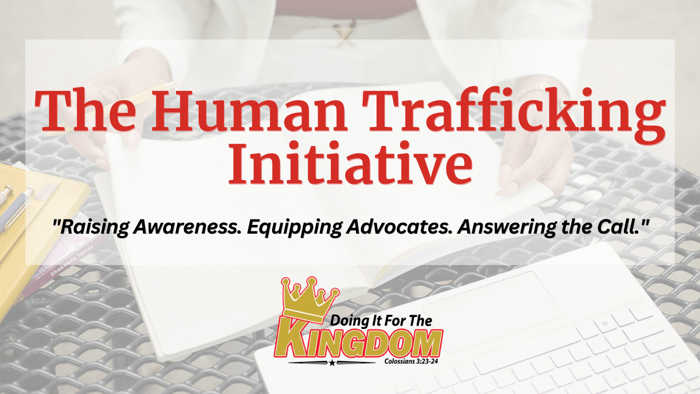Table of Contents
- Neurologist in Michigan Exploits Trafficking Victims: A Healthcare Crisis
- 📍 Case Summary: A Neurologist Turned Predator
- ⚡️ Abuse of Power: The Role of Buyers in Trafficking
- 📃 Legal Charges and Ramifications
- 🚨 Healthcare and Human Trafficking: A Dangerous Intersection
- 🛡️ How Healthcare Workers Can Help Fight Human Trafficking
- 🤞 Victim Impact: The Human Toll of Medical Exploitation
- 🏥 Systemic Accountability in Healthcare
- 🚩 The Hidden Face of Buyers
- 🛠️ What Communities and Faith Leaders Can Do
- 🚑 Resources for Reporting and Support
- ✉️ Final Word: Power Should Protect, Not Exploit
- FAQs
Neurologist in Michigan Exploits Trafficking Victims: A Healthcare Crisis
Neurologist in Michigan Exploits Trafficking Victims: A Healthcare Crisis
In June 2025, a case in Michigan shocked both the medical community and the broader public: a respected neurologist, Dr. Yevgeniy "Eugene" Goldberg, was indicted on federal sex trafficking charges. The story sent a chilling reminder that trafficking is not sustained only by shadowy criminals or distant gangs—it is also enabled by those in trusted professions who abuse their power and resources to exploit the vulnerable.
📍 Case Summary: A Neurologist Turned Predator
Suspect: Dr. Yevgeniy "Eugene" Goldberg, age 51 (the neurologist)
Location: Royal Oak, Michigan
Employer: Ascension Hospital, Warren, MI
Indictment Unsealed: June 21, 2025
Date of Arrest Reporting: June 27, 2025
🔗 Source: ClickOnDetroit Article
According to the federal indictment, Dr. Goldberg, the neurologist, was involved in a prolonged pattern of exploitation involving at least two trafficked women between 2018 and 2021. He paid traffickers to gain access to the victims, whom he sexually exploited repeatedly. His misconduct included transporting at least one of the victims to multiple cities across Michigan. The charges claim that he knew the women were being controlled and trafficked, but he still chose to engage in sex acts with them.
What makes this case particularly disturbing is Goldberg's use of medical care as a form of control. Prosecutors allege that when the women did not comply with his expectations, he threatened to revoke their access to essential healthcare, including medications and treatments. He used his professional status and the women's dependence on medical services as leverage—an abuse of power that turns the concept of "do no harm" on its head.
⚡️ Abuse of Power: The Role of Buyers in Trafficking
Human trafficking cannot exist without demand. The more buyers there are, the more traffickers work to supply them. But in cases like this, buyers don’t just create demand—they deepen the trauma.
As a doctor, Goldberg held a unique position of trust. His access to controlled substances, treatment plans, and diagnostic tools gave him power over patients and victims. In leveraging these resources to coerce trafficked individuals, he crossed into a form of systemic abuse that undermines the very integrity of healthcare.
And yet, his behavior is not unprecedented. Trafficking survivors often report that buyers include professionals: doctors, attorneys, educators, even clergy. These are people who exploit their influence to access victims while shielding themselves behind institutional credibility.
📃 Legal Charges and Ramifications
Dr. Goldberg was indicted in U.S. District Court on multiple federal charges:
Sex trafficking by force, fraud, or coercion
Conspiracy to commit sex trafficking
Obstruction and witness tampering
If convicted, Goldberg could face life in prison. Federal investigators noted that one of the victims was transported across multiple cities in Michigan, qualifying the case for federal jurisdiction.
This case sends a message: those who contribute to trafficking—even if they are not the original traffickers—can and will be prosecuted under federal law.
🚨 Healthcare and Human Trafficking: A Dangerous Intersection
Healthcare professionals are in a unique position to both help and harm victims. Studies from the National Human Trafficking Resource Center indicate that nearly 9 out of 10 trafficking survivors had contact with a medical professional while being trafficked—yet most went unidentified.
This makes hospitals and clinics one of the most critical intervention points. While medical professionals are trained to treat physical symptoms, few are taught how to recognize behavioral and relational signs of coercion, trafficking, or control.
🛡️ How Healthcare Workers Can Help Fight Human Trafficking
Here are concrete ways healthcare providers can become allies in the fight against trafficking:
Recognize the Signs: Victims may be accompanied by a controlling partner, lack identification, have inconsistencies in their stories, or exhibit signs of physical abuse and untreated medical conditions.
Use Trauma-Informed Practices: Speak privately with the patient. Ask nonjudgmental, open-ended questions. Avoid retraumatization by respecting autonomy and consent.
Implement Screening Tools: Use evidence-based trafficking screening checklists in ERs, urgent care, and clinics. Incorporate them into intake forms where appropriate.
Establish Protocols: Have a clear institutional plan for how to respond if a trafficking victim is identified, including safety plans, social work referrals, and legal reporting.
Engage in Ongoing Education: Attend training through organizations like HEAL Trafficking, Dignity Health, or local coalitions.
Partner with Community Resources: Build relationships with shelters, case managers, legal advocates, and faith-based nonprofits to ensure holistic aftercare.
By adopting these practices, medical professionals can shift from being blind spots in a victim's journey to becoming safe bridges to freedom.
🤞 Victim Impact: The Human Toll of Medical Exploitation
Survivors of sex trafficking already face immense trauma. When abuse is compounded by someone posing as a healer, the damage runs even deeper. Victims in this case were reportedly:
Dependent on medical care and prescriptions for chronic conditions
Threatened with the withdrawal of that care as punishment
Transported to various cities by their traffickers
Stripped of autonomy and coerced into silence
Recovery for such survivors often requires:
Medical detox and stabilization
Mental health treatment for PTSD, anxiety, and depression
Legal support to testify without re-traumatization
Long-term housing and case management
Spiritual counseling or support when requested
🏥 Systemic Accountability in Healthcare
Cases like this demand a deeper look at institutional accountability. Hospitals and healthcare systems should vet employees during hiring and create ongoing accountability measures. These may include:
Ethics oversight boards
Anonymous reporting lines
Interdisciplinary training for all levels of staff
Partnering with anti-trafficking nonprofits to improve internal protocols
Encouraging staff to speak up when they observe unethical behavior
Medical institutions must also audit prescription and patient records to ensure medications are not being misused as tools of manipulation or control.
🚩 The Hidden Face of Buyers
Many people think of traffickers as gang leaders or pimps. But more often than not, the trafficker is the supplier, and the buyer is the engine. Buyers fuel the market. And when buyers come from elite, educated, and powerful sectors of society, it becomes even harder to spot and stop exploitation.
This is why accountability must extend beyond traffickers to those who willingly engage in exploitation, no matter how professional their title or polished their resume.
🛠️ What Communities and Faith Leaders Can Do
Churches, counselors, educators, and community organizations must take a stand:
Teach young people how traffickers and buyers operate, including those in positions of trust.
Support survivors with holistic, faith-based programs.
Hold community forums to discuss real cases and promote prevention.
Push for legislation that holds buyers accountable at both the state and federal levels.
Partner with local hospitals to create survivor-informed training and safety protocols.
🚑 Resources for Reporting and Support
National Human Trafficking Hotline: 1-888-373-7888
HEAL Trafficking: Healthcare-specific anti-trafficking resources
Polaris Project: Survivor-centered research and education
Doing It for the Kingdom: Awareness, education, and faith-based training opportunities
✉️ Final Word: Power Should Protect, Not Exploit
The Michigan neurologist case reminds us that trafficking often hides in plain sight. When power is abused, systems must respond. And when survivors speak, we must listen.
Buyers must no longer remain anonymous shadows in the trafficking equation. Whether they sit behind hospital desks, courtroom benches, or corporate offices, their actions have consequences.
At Doing It for the Kingdom, Inc., we believe every profession should be a platform for justice. Let this case be a call to examine our systems, educate our leaders, and hold even the most powerful accountable.
🔗 Visit https://www.doingitforthekingdom.org to learn more, donate, or invite our team to train your organization.
Because justice isn’t just about what we punish. It’s about who we protect.
FAQs
1. What are the charges against Dr. Yevgeniy Goldberg in Michigan?
Dr. Goldberg faces federal charges including sex trafficking by force, fraud, or coercion, conspiracy to commit sex trafficking, and obstruction of justice. If convicted, he could face life in prison.
2. How do healthcare professionals contribute to fighting human trafficking?
Healthcare workers can play a vital role by identifying red flags, using trauma-informed screening practices, establishing internal protocols, and partnering with local anti-trafficking organizations to support victims.
3. Why is the role of buyers often overlooked in human trafficking cases?
Buyers are often professionals who hide behind societal respectability. Their demand fuels trafficking, and many operate in secrecy, making accountability more difficult, but no less essential.
4. What are the signs of trafficking that doctors and nurses should look for?
Signs include patients accompanied by controlling individuals, inconsistent stories, signs of physical abuse, untreated conditions, no personal documents, or reluctance to speak freely.
5. What resources are available for healthcare providers and trafficking victims?
Resources include HEAL Trafficking for training, National Human Trafficking Hotline for reporting, and local coalitions offering survivor care and faith-based support like Doing It for the Kingdom.


